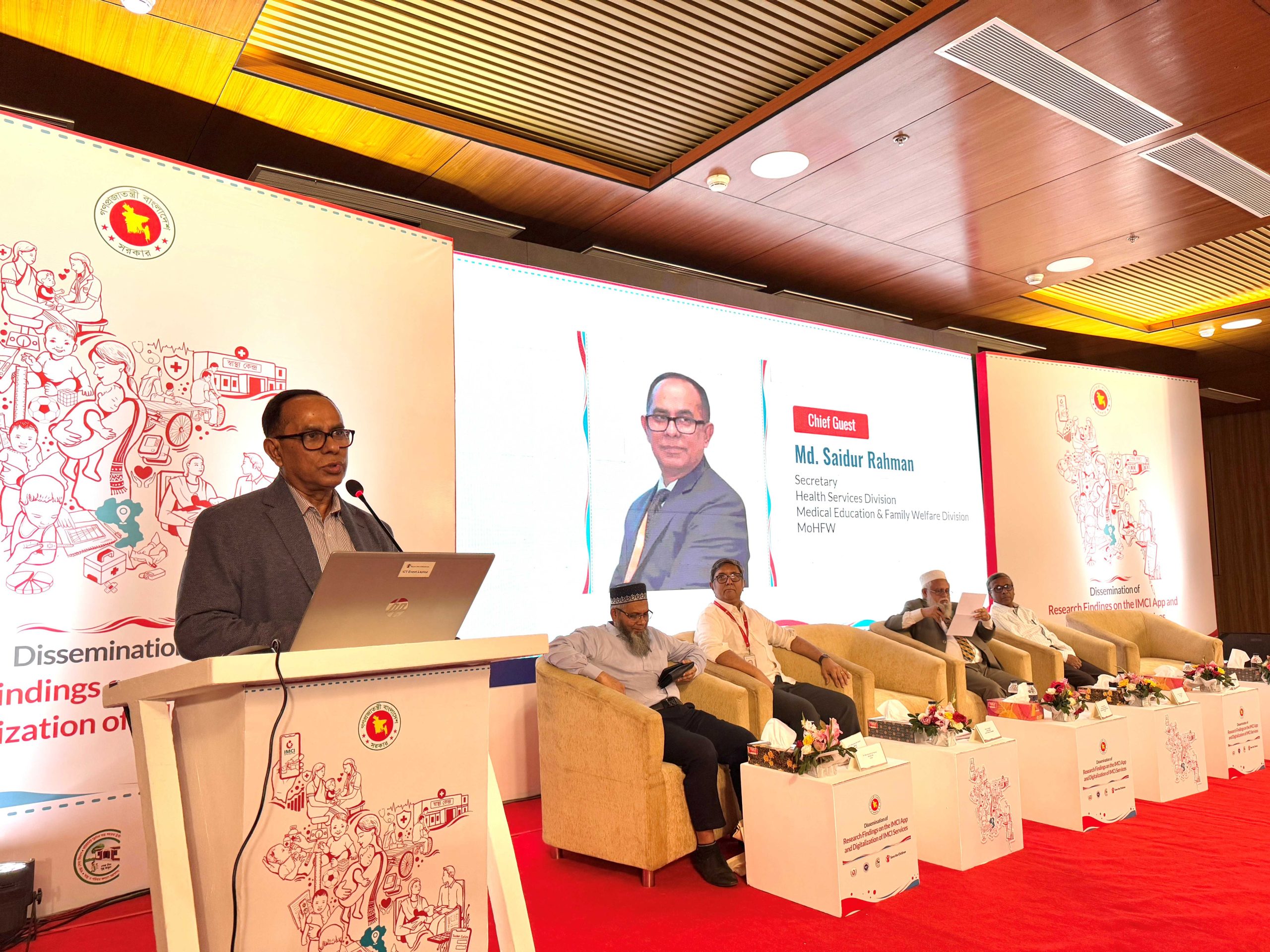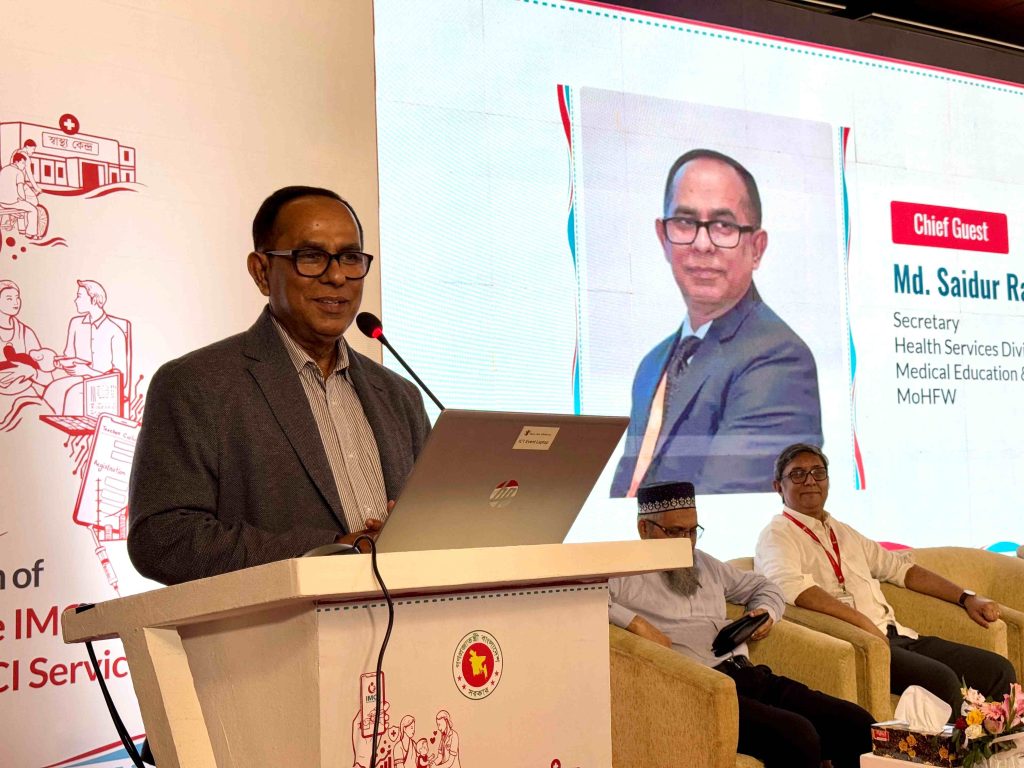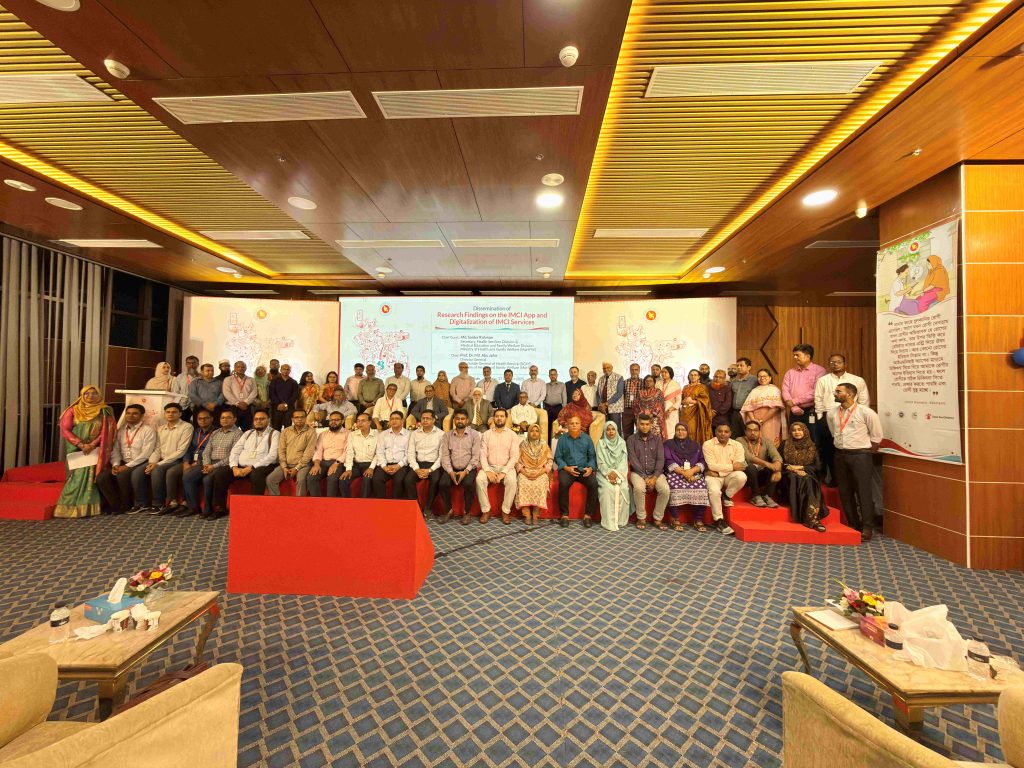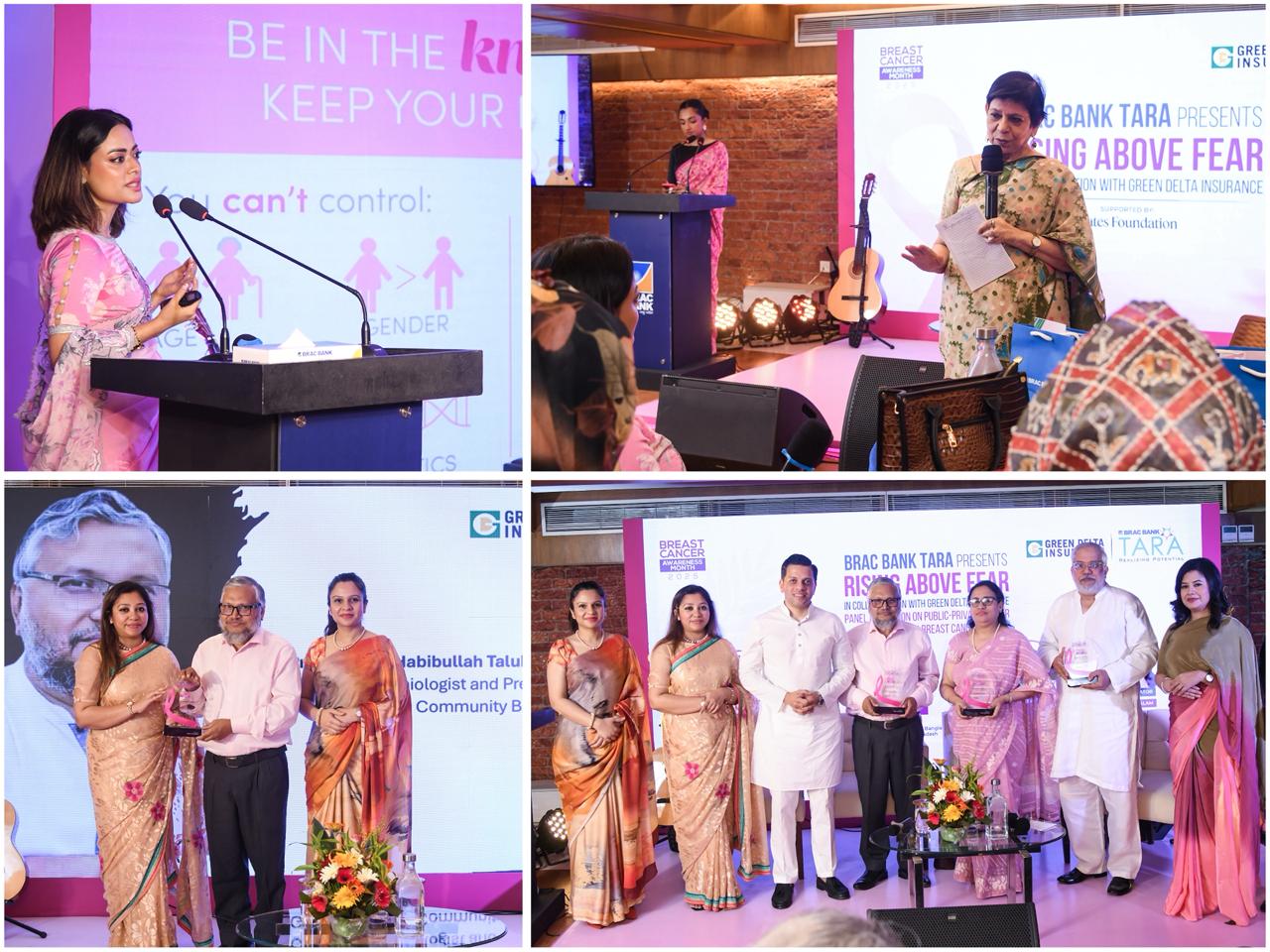The Directorate General of Health Services (DGHS), Ministry of Health and Family Welfare (MoHFW), in collaboration with Save the Children in Bangladesh, organized a national dissemination event today at Melaghor-1, DGHS, Mohakhali TB Gate, Dhaka, to share the findings of the Implementation Research and Cost-Benefit Analysis of the Integrated Management of Childhood Illness (IMCI) Application – a digital tool developed to strengthen the management of childhood illnesses in Bangladesh.
The event brought together senior government officials, development partners, digital health experts, and implementing agencies to review lessons learned, assess the effectiveness and scalability of the digital IMCI platform, and discuss next steps toward nationwide adoption.
The dissemination was graced by the presence of the Honorable Secretary (Health Services), Ministry of Health and Family Welfare Md. Saidur Rahman and the Director General, Directorate General of Health Services, as chief and special guests. Representatives from UNICEF, WHO, icddr,b, and other development partners also attended the event alongside government officials from Barishal District, where the digital platforms were piloted and validated.
The Implementation Research and Cost-Benefit Analysis, conducted under the leadership of DGHS, aimed to evaluate the effectiveness, feasibility, and cost-efficiency of integrating the IMCI Application within the National Management Information System (MIS). The study found that digitalizing IMCI services improved the accuracy of case management, timeliness of reporting, and data-driven decision-making at multiple levels of the health system. The cost-benefit analysis indicated that digital integration not only reduced manual reporting time and paperwork but also enhanced service quality and resource efficiency—offering a strong case for national-level scaling.
Presenting the findings, the research team from Save the Children and Professor, Shafiun N. Shimul, PhD, Professor & Director, Institute of Health Economics, University of Dhaka highlighted that the integration supports greater accountability, improved patient tracking, and better monitoring of child health outcomes, particularly in rural and hard-to-reach areas.
In his closing remarks, Shumon Sengupta, Country Director of Save the Children emphasized the importance of continued collaboration between the Government of Bangladesh and development partners to sustain digital innovations within the national health system. He said, “The IMCI app has potential to enhance healthcare in Bangladesh. This app has proven to be useful in early detention of diseases, treatment, and referral mechanism. Save the Children is grateful to DGHS for their collaboration, and we are working to leverage the learning from the implementation research. Additionally, we will pitch our donors for more funding for similar projects. We are proud and grateful from Save the Children International for making this app possible and implementing its application at Barishal Division.”
The dissemination concluded with a joint commitment from DGHS and Save the Children to continue scaling digital innovations that ensure quality health services for every child in Bangladesh.
Md. Saidur Rahman, Honorable Secretary, Health Services Division, Ministry of Health & Family Welfare stated:
“Children are the heart of the family however many die every year from causes that may be preventable. This app has shown commendable results in identifying diseases and provides timely treatment, diagnosis, referral and prescribe medicines. It should be implemented throughout the country so nationally children can benefit from it. I express my gratitude to Save the Children for their support. With this type of collaboration, we dream of reducing child death significant for the well-being of the children of Bangladesh.”
Prof. Dr. Md. Abu Jafor, Director General, Directorate General of Health Services, Ministry of Health & Family Welfare stated:
“Children are the 40% of the total population of Bangladesh. Our 2030 target is to ensure health security for everyone. Integration at grassroot level is mandatory for that. IMCI app can be implemented broadly. The CHCP, SACMO, and all the concerned health service provides all made it possible for implementation of this IMCI app.”
About the IMCI Application
The Integrated Management of Childhood Illness (IMCI) Application is a digital tool developed in accordance with the National IMCI guidelines of Bangladesh. It assists frontline health workers in the assessment, classification, treatment, and referral of sick children aged 0–5 years suffering from common childhood illnesses, including pneumonia, diarrhea, malnutrition, fever, and ear infections.
The application was jointly developed by the DGHS, MoHFW, and Save the Children in Bangladesh, and integrated into national digital platforms (DHIS2, OpenSRP, and OpenMRS) to promote standardized, data-driven, and efficient service delivery. The initiative is part of Save the Children’s ongoing commitment to digital transformation in child health, ensuring that technology serves to strengthen public health systems and improve outcomes for children across Bangladesh.
















